Hope Reflected | The Light
Written by H, Posted in Christian Living, Published Work
The Light
This past week, I’ve been thinking quite a bit about the light. It’s not that the weather’s been particularly rainy, however my heart has just been hurting when I hear the news of unrest both in North America and abroad. Perhaps it’s the constant connectivity of social media that is making everybody suddenly “aware,” or perhaps as a nation we are finally getting to the point where something’s got to give. Either way, now more than ever, I find myself trying to remember that this world is not our forever home, and I find my focus and meditation is leaning more on the promises of God and His light.
Without light, we wouldn’t be able to accomplish much. It’s like a life without Christ; without Him, we can’t really accomplish much. I mean, sure, we may think we can do anything, but earthly glory is only temporary. Light is a fascinating thing.
Light encourages. “The LORD is my light and my salvation – whom shall I fear? The LORD is the strength of my life; of whom shall I be afraid?” (Psalm 27:1) If you’re someone who suffers from SAD (Seasonal Affective Disorder), you know what I mean when I say that light encourages. There’s something about being stuck in the dull days of the middle of winter, where clouds are full and sunlight is sparse. When you experience the sunlight in the midst of the dark winter days, it’s almost like a weight lifts off your shoulders. You think more positively, your focus is more clear, and you are encouraged that spring is somewhere around the corner. The same rules apply when you have Christ as your Saviour. He encourages. He gives us strength. “Be strong and take heart, all you who hope in the LORD.” (Psalm 31:24) As Christians, we aren’t called to shine our own light, rather we are called to reflect Christ’s light. “Therefore encourage one another and build one another up.” (1 Thessalonians 5:11)
Light helps things grow. “All things that are exposed are made manifest by the light, for whatever makes manifest is light.” (Ephesians 5:13) If you’re reading this, you’re likely well aware of photosynthesis – the process in which plants use sunlight to make food from carbon dioxide and water. Not only does sunlight help plants grow, it also assists in the production of oxygen as a result. When you have Christ as your Saviour, you don’t just stay the same. There is great growth that comes as a result of having a genuine heart for God. Just as you learn and grow from grade to grade in school, you grow spiritually as you grow closer to God. “Therefore as you have received Christ Jesus the Lord, so walk in Him, having been firmly rooted and now being built up in Him and established in your faith, just as you were instructed, and overflowing with gratitude.” (Colossians 2:6-7)
Light dispels darkness. “The light shines in the darkness, and the darkness has not overcome it.” (John 1:5) There is a whole lot of darkness in this world. And that’s to be expected. We live in a broken world. As Anne Graham Lotz (The Reverend Billy Graham’s daughter) said when asked about how God could let certain things happen in the world, “for several years now Americans in a sense have shaken their first at God and said, ‘God, we want you out of our schools, our government, our business, we want you out of our marketplace, and God, who is a gentleman, has just quietly backed out of our national and political life, our public life, removing His hand of blessing and protection.’” It’s not just happening in America – it’s happening everywhere. The good news is that God’s light dispels darkness. We just need to put our faith in Him.
You may feel as though you’re walking in the darkness. Perhaps you’re anxious, discouraged, or fearful about the future. There is hope! There is light! As C.S. Lewis said, “I believe in Christ, like I believe in the sun – not because I can see it, but because by it I can see everything else.” “Don’t shine so that others can see you, shine so that through you, others can see Him.”

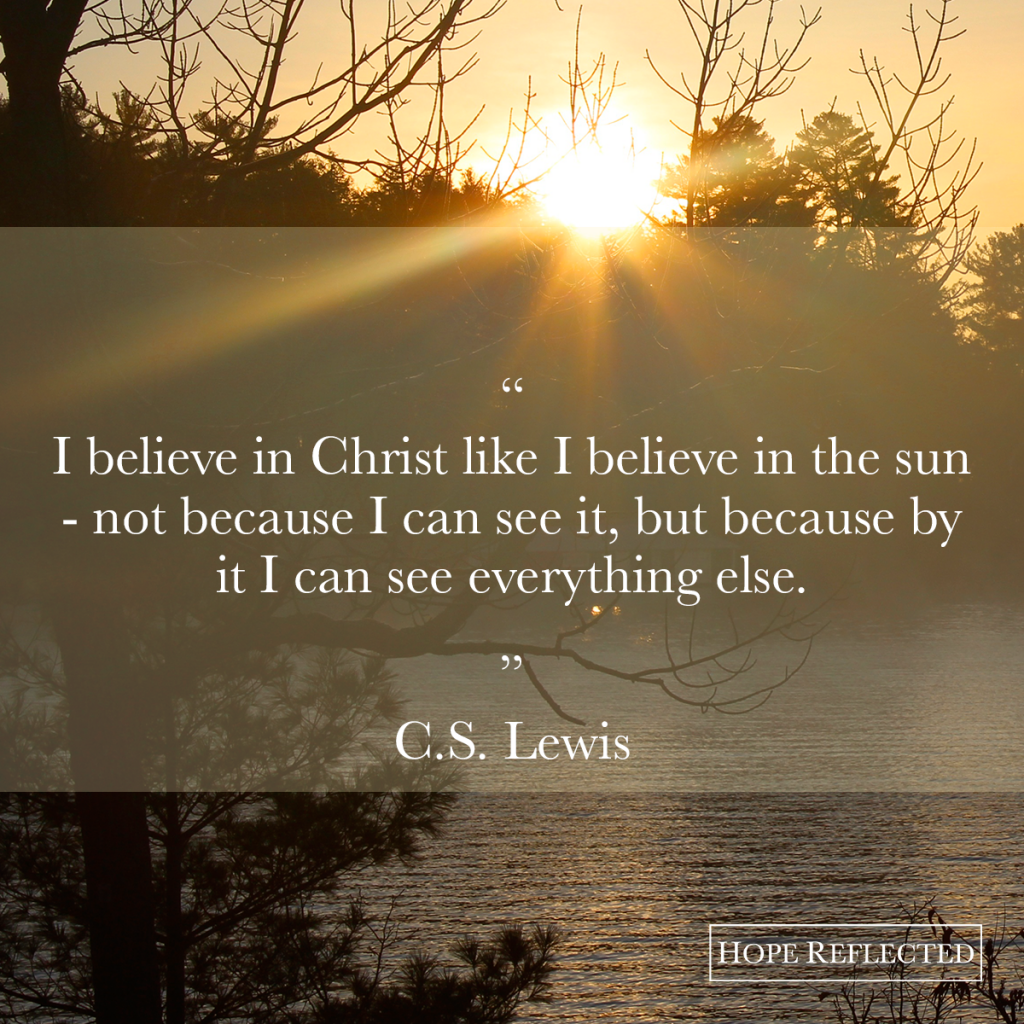


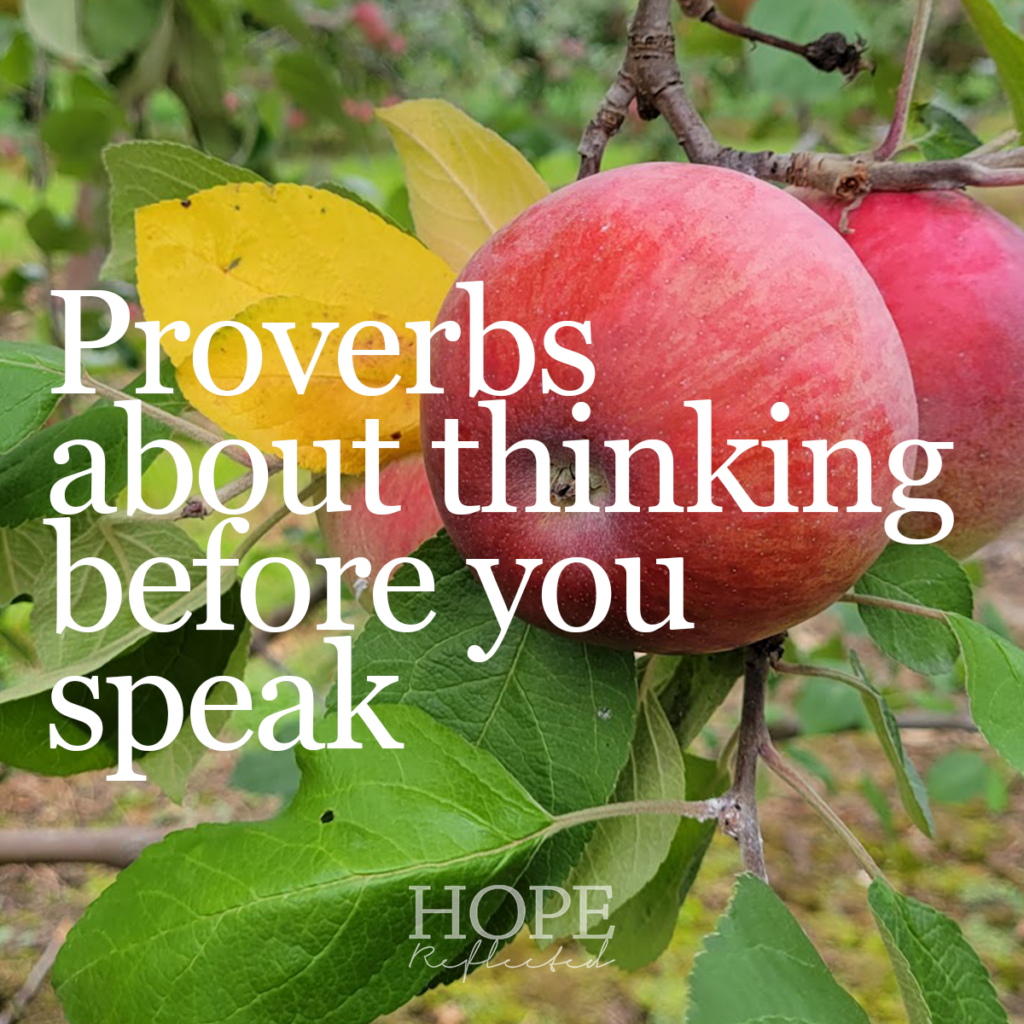
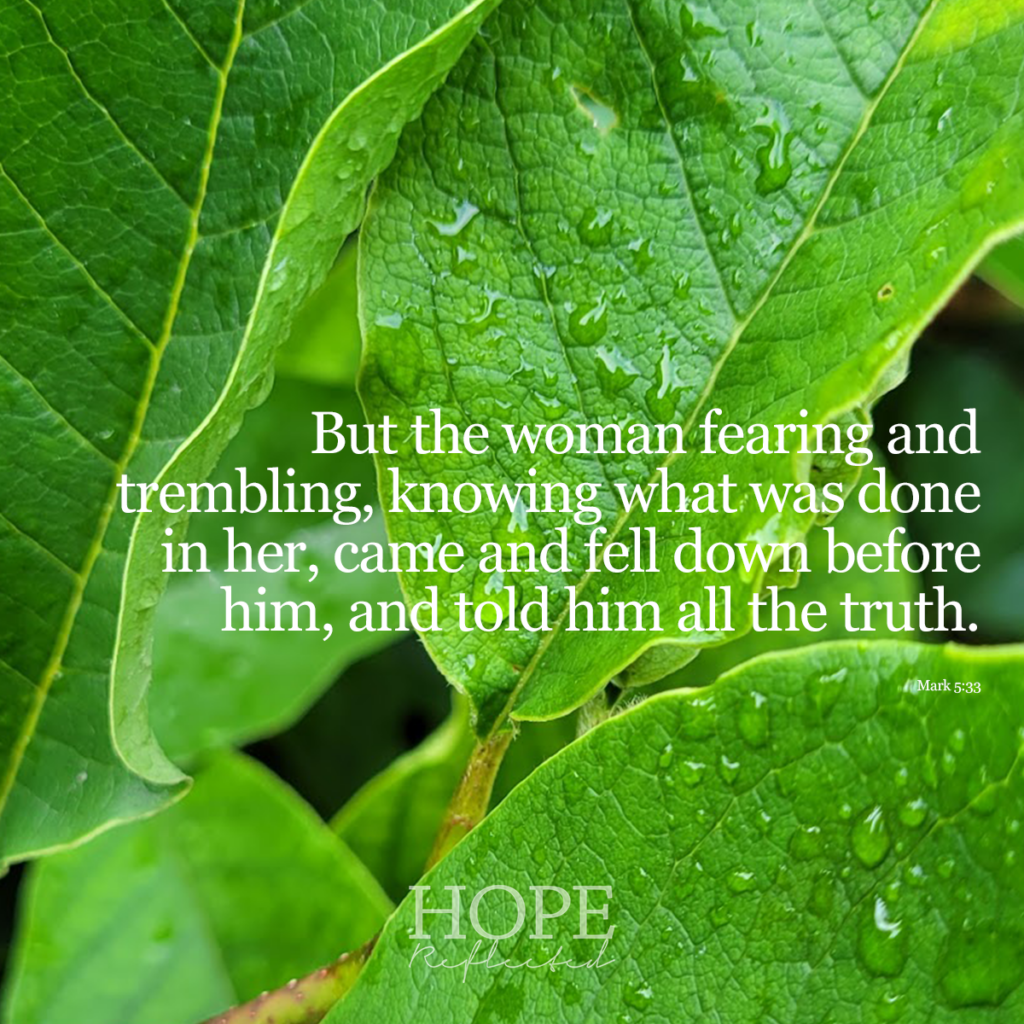
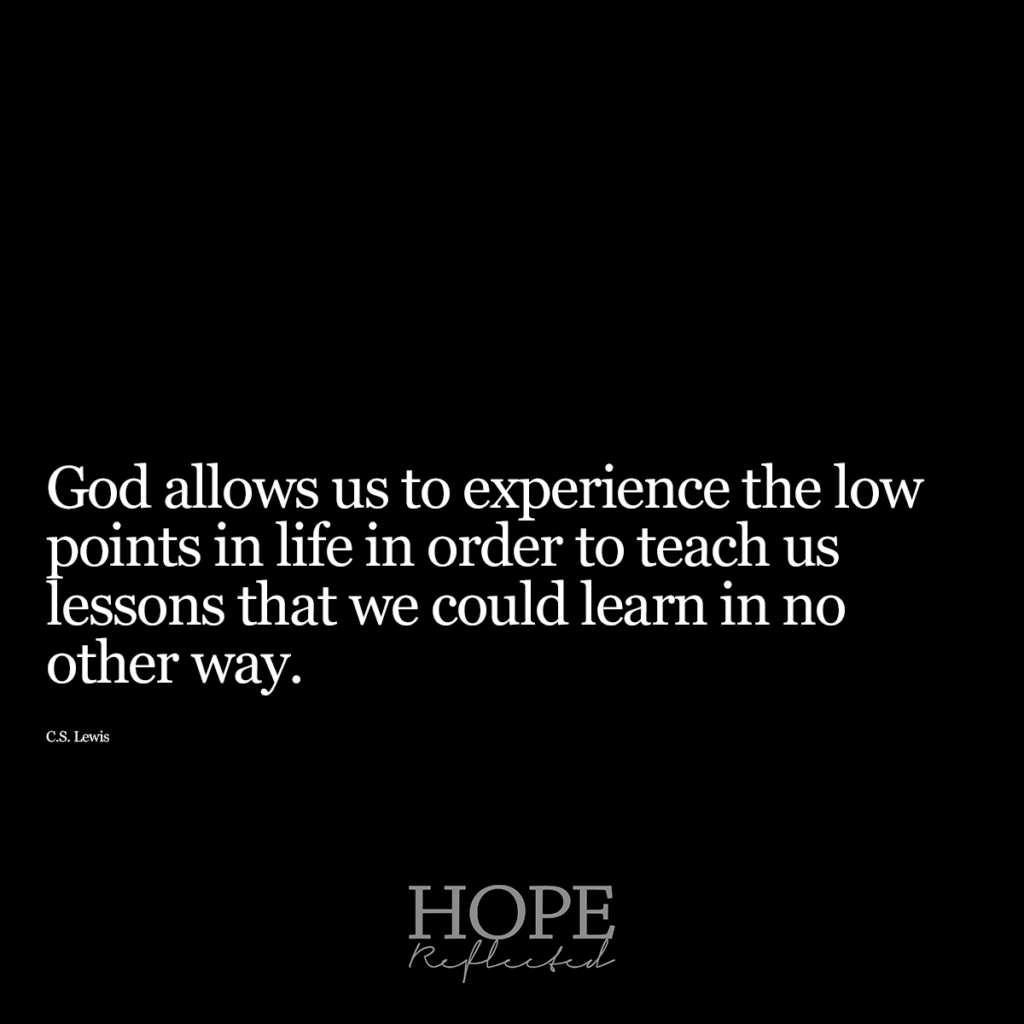
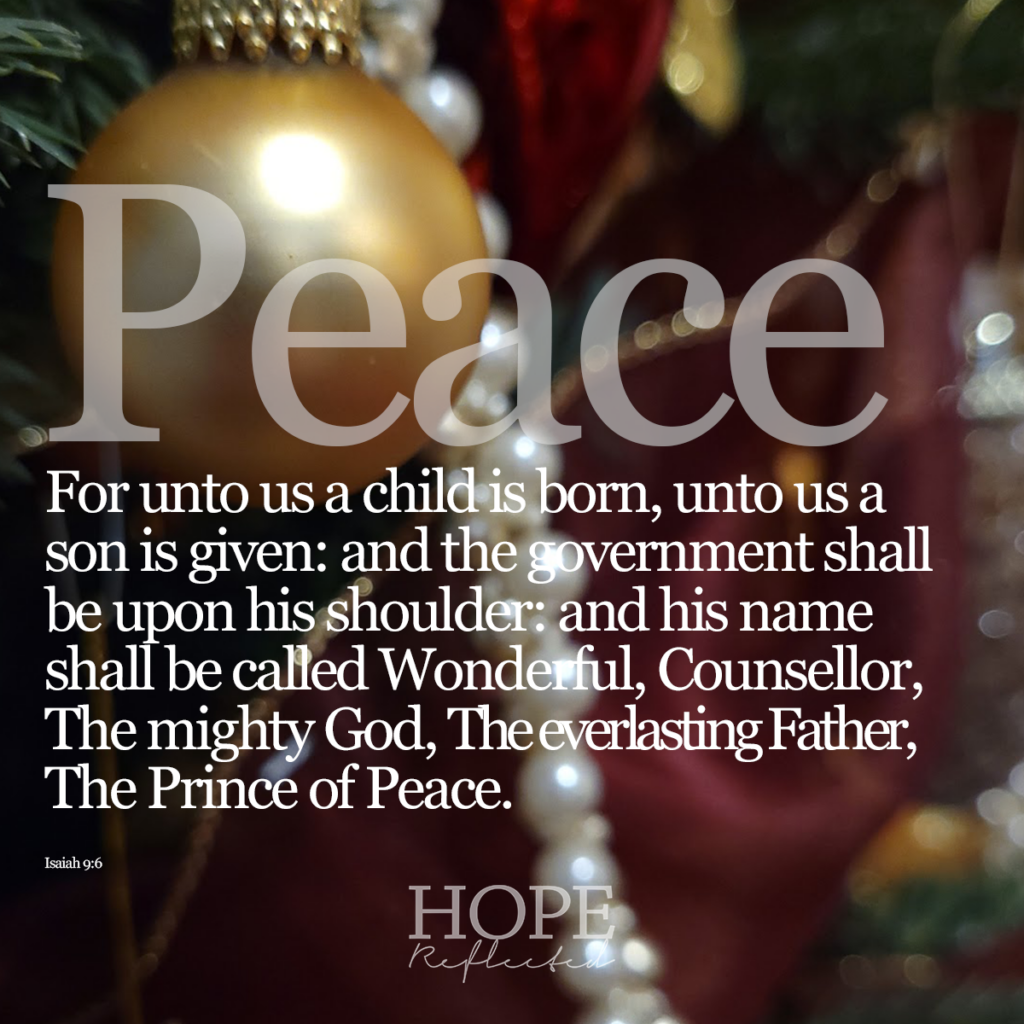
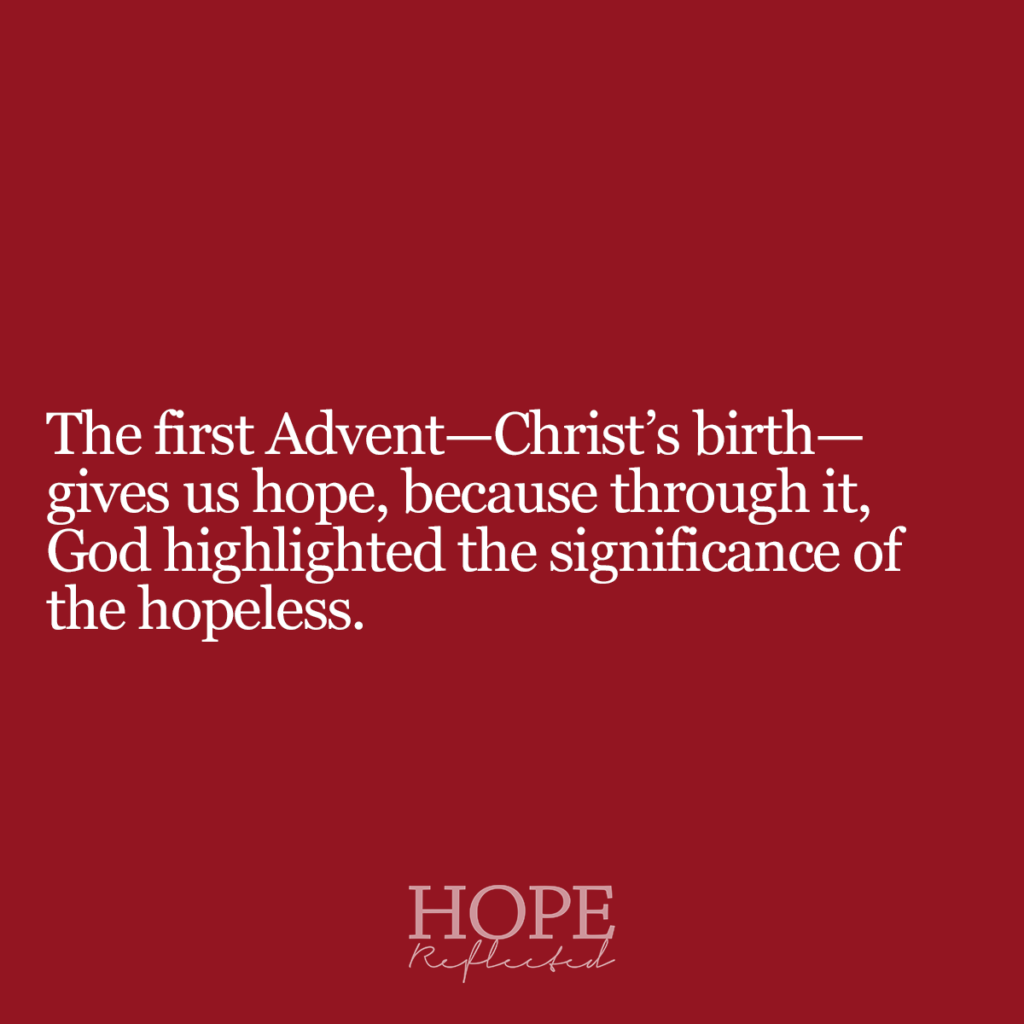
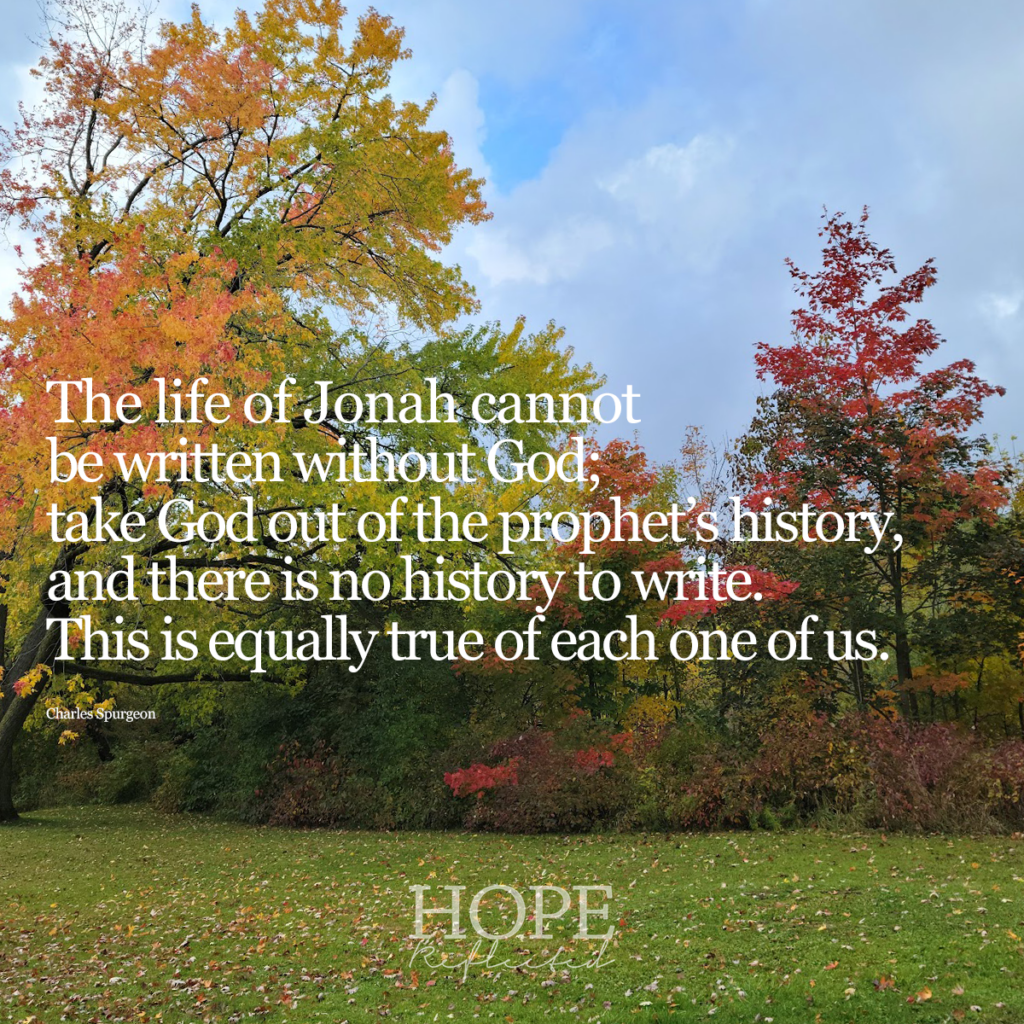
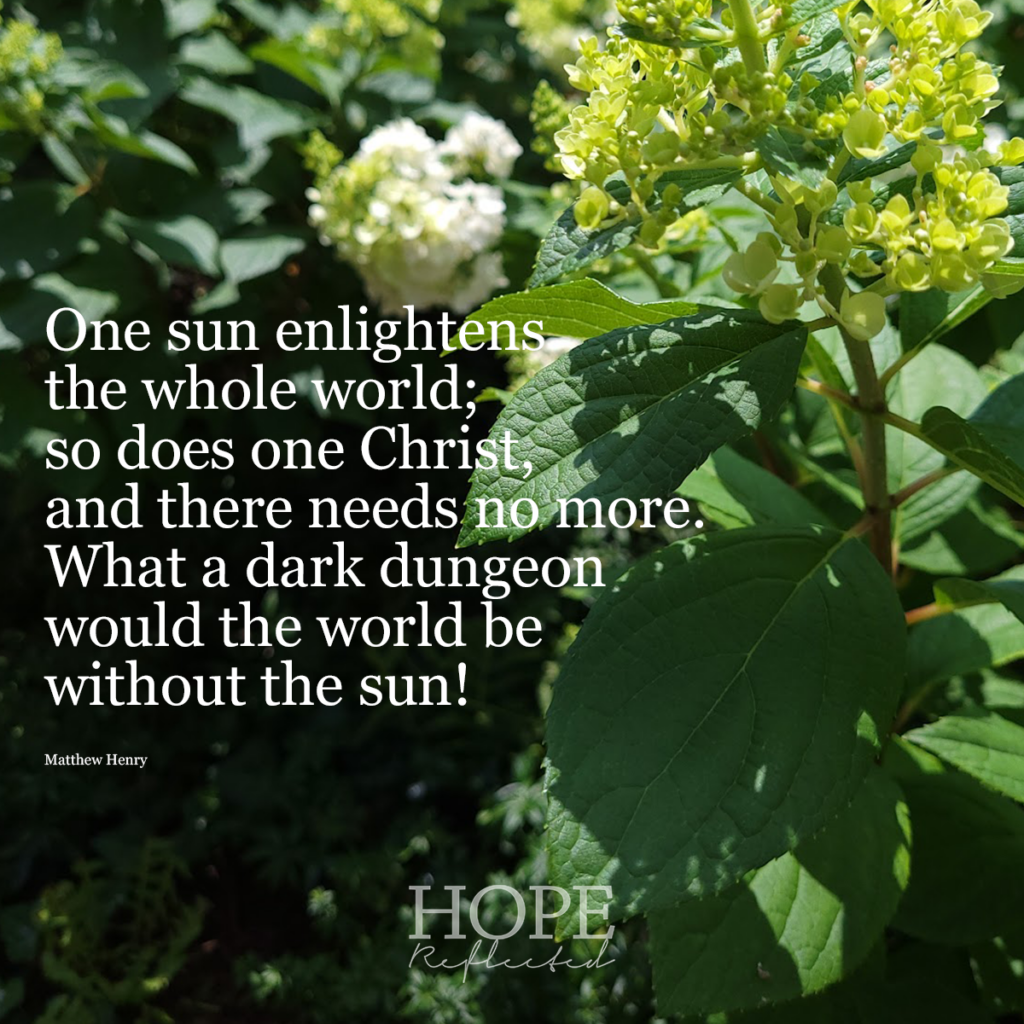

![The crowd in John 6 were literally hungry, many of them being poor and without food.
It did not matter to them how Jesus went about preparing the feast for them, or the means by which He fed them; it mattered to them that they were fed.
Jesus admonished them and called them out for their motives, “Ye seek me, not because ye saw the miracles, but because ye did eat of the loaves, and were filled.” (John 6:26).
As we seek after Jesus, are we doing so because of Him, or because of what He can do for us?
You can read more of "Without any other motive" on hopereflected.com [Link in profile]
.
.
.
.
.
#seekingChrist #knowingGod #Christianliving #theGiver #Tozer #Tozerquotes #qotd #motive #hopereflected](https://www.hopereflected.com/wp-content/plugins/instagram-feed/img/placeholder.png)